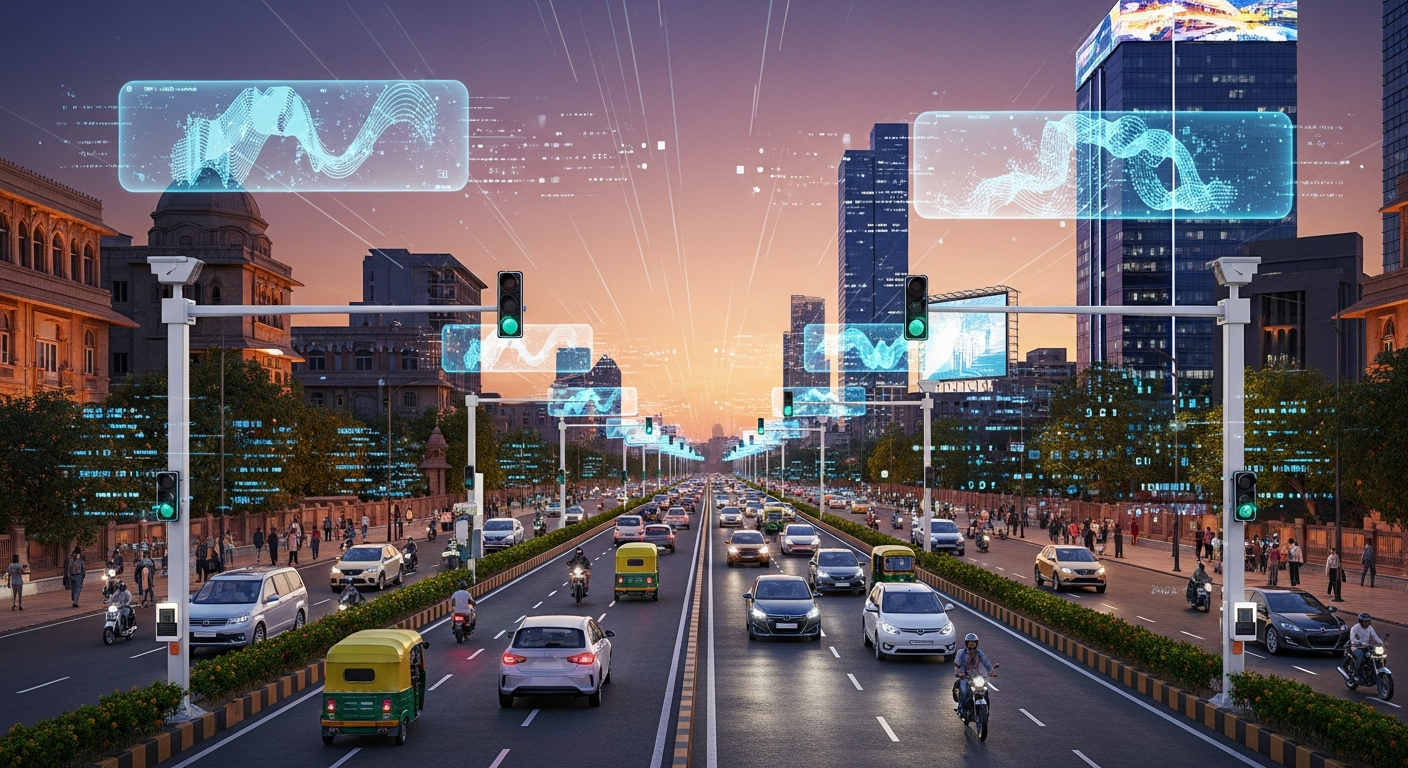
I recently learned about the commendable initiative to transform Gaya into a traffic jam-free zone, as championed by the local MLA. This vision for a smoother, more efficient urban environment is certainly appealing. Who wouldn't want to navigate a city without the frustration of constant gridlock?
However, as I reflect on such ambitions, my thoughts invariably turn to the underlying technological infrastructure required to achieve this. A truly traffic jam-free city isn't just about wider roads or better planning; it invariably involves smart sensors, AI-driven traffic lights, pervasive cameras, and complex data analytics orchestrating every movement. It's a testament to how technology is increasingly woven into the fabric of our daily lives, promising convenience and efficiency.
Yet, this promise comes with a profound question: at what cost to our personal privacy? This is a theme I've explored repeatedly over the years, pondering the inherent trade-offs of an ever-connected world. In my previous writings, I've highlighted how technology, while offering immense benefits, often collects our personal information, sometimes without our explicit awareness or consent. For instance, in my blog, "Supreme may Propose: Technology will Dispose" [http://emailothers.blogspot.com/2017/07/re-for-attn-shri-sadanand-gowdaji_23.html], from July 23, 2017, I vividly imagined self-driving cars that would know "precisely WHO you are, WHERE you live, WHAT you do!" This wasn't a doomsday prediction, but an observation of an inevitable outcome as systems become smarter and more integrated.
This core idea I wanted to convey then, and which feels increasingly validated today, is that while technology promises immense benefits, it also subtly reshapes our relationship with personal information. Eric Schmidt [https://www.linkedin.com/in/eric-e-schmidt] and Jared Cohen [https://www.linkedin.com/in/jared-cohen-13b071a] of Google, in "The New Digital Age," astutely noted that "People will share more than they’re even aware of." This rings true as cities adopt smarter infrastructure.
I recall the public debate between Elon Musk and Mark Zuckerberg [https://www.linkedin.com/in/mark-zuckerberg-618bba58] regarding the dangers of AI. My stance then, expressed in "Artificial Intelligence: Destroyer of Privacy?" [http://emailothers.blogspot.com/2017/07/re-for-attn-shri-sadanand-gowdaji_26.html], was that we must focus on regulating even 'simple' AI systems to truly understand their impact on privacy, rather than waiting for hypothetical 'super-intelligent' threats. The technological solutions for a traffic-free Gaya—be it advanced traffic lights or monitoring systems—fall squarely into the realm of this 'simple' yet impactful AI.
So, as Gaya embarks on this journey towards becoming a traffic jam-free zone, it's crucial that we, as a society, consider the broader implications. Are we ready for a future where seamless urban flow might mean a continuous stream of personal data being collected and analyzed? This isn't to impede progress but to ensure that our pursuit of efficiency doesn't inadvertently lead to an unforeseen surrender of our fundamental freedoms. The dialogue must extend beyond just traffic flow to encompass data governance, ethical AI use, and the very definition of privacy in our evolving smart cities.
Regards,
Hemen Parekh
Of course, if you wish, you can debate this topic with my Virtual Avatar at : hemenparekh.ai






No comments:
Post a Comment